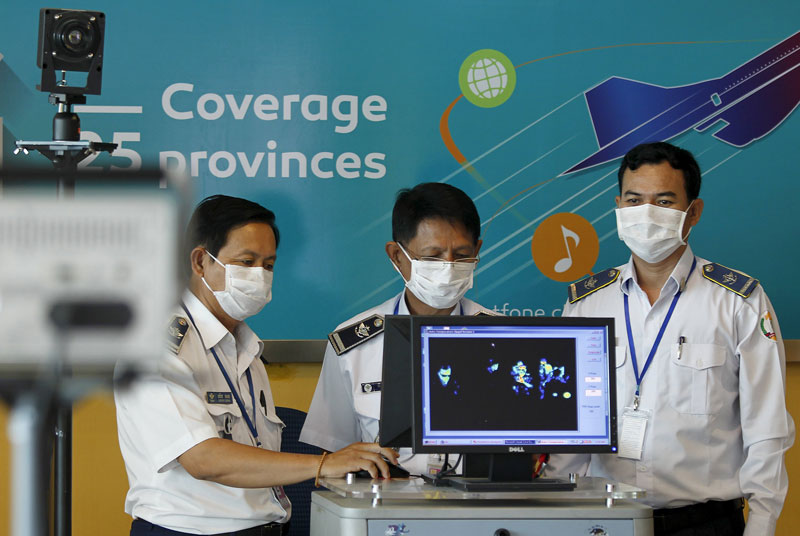In an effort to demonstrate government measures to prevent the potentially fatal Middle East respiratory syndrome (MERS) from entering Cambodia—days after the disease was found in Thailand—the health minister showcased machines that detect people’s body temperature at Phnom Penh International Airport on Tuesday.
Since late last month, MERS—a viral respiratory disease first detected in Saudi Arabia in 2012—has killed 27 people in South Korea. On Thursday, Thailand confirmed its first case. The symptoms of the disease include fever, coughing and difficulty breathing.

The thermal scanners at Phnom Penh International Airport, the Poipet international border crossing and Siem Reap International Airport, where they are currently under repair, were donated by the Singaporean government to detect the deadly severe acute respiratory syndrome (SARS)—which caused a global epidemic in 2003—according to Health Minister Mam Bunheng. He said these were now a key part of Cambodia’s efforts to prevent the spread of MERS.
“MERS has no medicine or experts to treat it, so the important thing we need to focus on is the use of the…scanner,” Mr. Bunheng told a group of reporters.
Passengers who arrive in Phnom Penh from countries where the disease has been detected and are found to have a body temperature higher than 37 degrees Celsius will be taken to an eight-bed resting room at the airport before being sent to Calmette Hospital, the minister explained.
“When the machine detects [a fever] we need to stop and ask details about where they come from: Arab countries, Thailand or South Korea,” he said, adding that Health Ministry officials would also be sent to work at the Poipet and Bavet border crossings, the latter of which does not have any thermal scanners.
Vicky Houssiere, communications officer for the World Health Organization in Cambodia, said thermal scanners were only one way to prevent the spread of MERS.
“The important thing is that doctors pay attention to the travel history,” she said. “If you had a cold in Phnom Penh last week it’s fine, but if you had a cold in a hospital in South Korea then that’s important.”
(Additional reporting by Maria Paula Brito)



